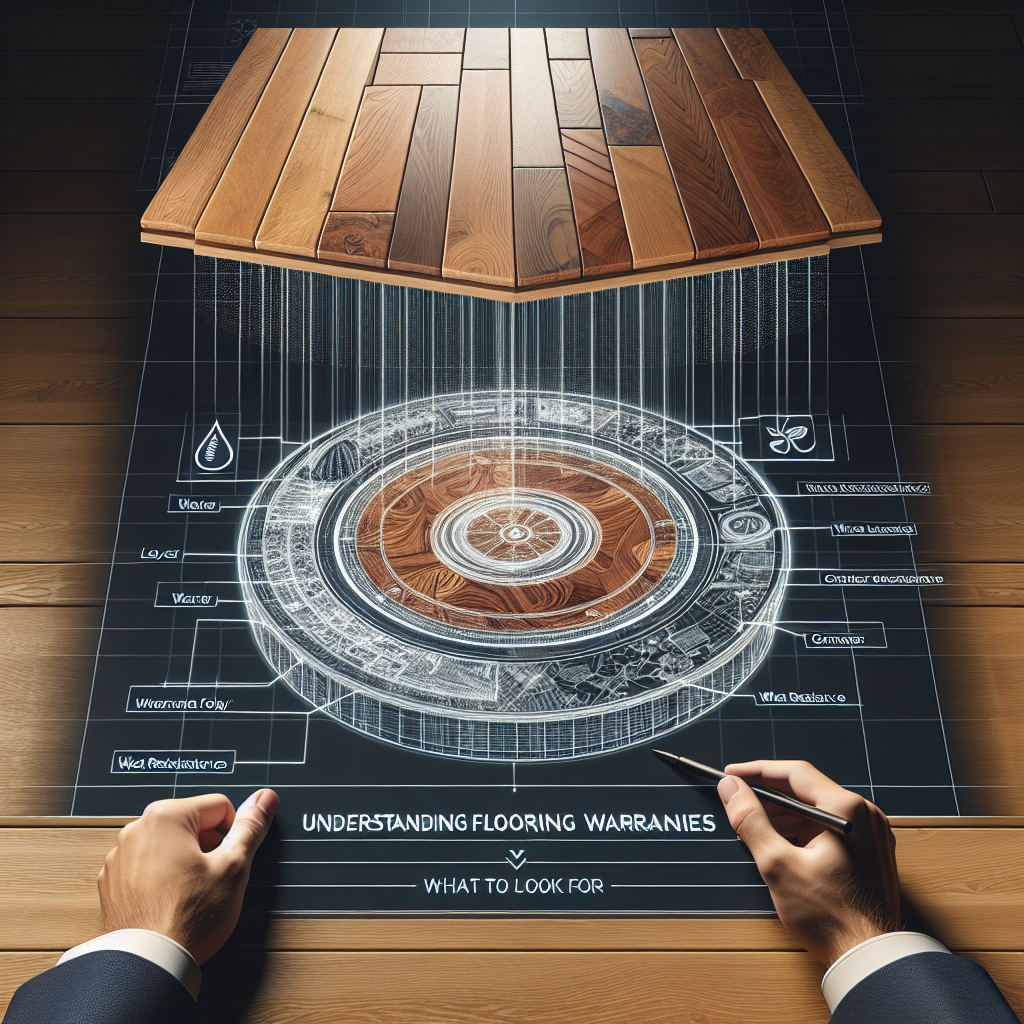When it comes to installing new flooring, homeowners often feel overwhelmed by the myriad choices available. From hardwood to laminate to luxury vinyl, each type has its own unique characteristics and benefits. However, one thing that can often get lost in the shuffle is the warranty associated with your flooring purchase. Understanding flooring warranties is crucial, whether you’re trying to safeguard your investment or simply want peace of mind. Let’s dive into the details of what to look for in flooring warranties to help you make an informed decision.
What Is a Flooring Warranty?
A flooring warranty is essentially a promise from the manufacturer that their product is free from defects and will perform as advertised for a specified period. Warranties can cover different aspects of the flooring, including its durability, resistance to wear and tear, and more. Understanding the nuances of these warranties can save you from potential headaches down the line.
Types of Flooring Warranties
-
Manufacturer’s Warranty
This warranty is provided by the flooring manufacturer and outlines what is covered in terms of defects, wear, and manufacturing errors. Typically, this warranty is transferable if you sell your home, which adds value to your property for future buyers. -
Limited Lifetime Warranty
Many manufacturers offer a "limited lifetime warranty," which sounds generous but often comes with certain conditions. It’s essential to read the fine print to understand what "lifetime" means in this context—usually, it’s the life of the flooring under normal residential use. -
Surface Warranties
Surface warranties typically cover issues like fading, staining, and surface wear. They generally don’t include damages caused by improper installation or maintenance, so make sure to follow care instructions closely. - Structural Warranty
Flooring with a structural warranty ensures that it will remain intact and maintain its original appearance for a specified time period. This is particularly important for engineered hardwood flooring, which can be more prone to warping or shifting under certain conditions.
What to Look For in a Flooring Warranty
Duration of Coverage
The length of the warranty can provide insight into the manufacturer’s confidence in their product. Longer warranties often signal higher-quality flooring, but always check what is specifically covered during that period.
Types of Coverage
Not all warranties cover the same issues. Look for warranties that include:
- Wear and Tear: Essential for high-traffic areas.
- Moisture Resistance: Particularly important if you are installing flooring in basements or kitchens.
- Stains and Fading: If your flooring is exposed to UV light or spills, this coverage is crucial.
Exclusions and Limitations
All warranties come with exclusions—things that won’t be covered, often including damages from improper installation, maintenance, or environmental factors. Be sure to read these sections carefully, as they will define your responsibilities as a homeowner.
Claim Process
Understanding the claims process is vital. Look for warranties that have a straightforward procedure for filing a claim. A complicated or lengthy process can lead to frustration should you need to utilize the warranty in the future.
Transferability
If you plan to sell your home, a transferable warranty can increase your property’s appeal. Finding out if the warranty can be transferred to a new owner—and under what conditions—can be crucial for maintaining your home’s value.
How to Protect Your Flooring Warranty
To ensure that your warranty remains valid, you’ll need to adhere to the manufacturer’s care and maintenance guidelines. Here are some general tips to keep in mind:
-
Choose Professional Installation: Proper installation can help prevent many issues that could lead to a denied warranty claim.
-
Follow Care Instructions: Whether it’s using specific cleaning products or techniques, make sure to abide by the manufacturer’s guidelines.
- Maintain Your Flooring: Regular cleaning and timely repair of any damage can help prolong the life of your flooring and keep your warranty intact.
The Bottom Line
Understanding flooring warranties doesn’t need to be daunting. Armed with the right knowledge, you can choose flooring that not only matches your aesthetic but also comes with a warranty that protects your investment. Always read the fine print, compare warranties from different manufacturers, and ensure you’re selecting flooring that meets your lifestyle needs. With careful consideration, you can safeguard your home and enjoy your beautiful new floors worry-free.
Now that you know the ins and outs of flooring warranties, you can approach your flooring purchase with confidence, ensuring that you invest wisely in your home’s comfort and style. Happy flooring!


